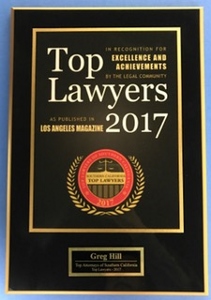On January 10, 2012, the United States Supreme Court reversed a murder conviction in
Smith v. Cain (2012 DJDAR 296). The opinion held that a Louisiana district attorney violated his duty to produce material favorable to the defense and material to defendant’s guilty or punishment, as set out in
Brady v. Maryland (1963) 373 U.S. 83.
This ruling should be cheered by all defense attorneys including those in California, as the U.S. Supreme Court’s ruling applies nationwide.
Summary in 40 Words or Less: When the DA does not produce evidence that would reasonably be likely to produce a different result (i.e. cause the jury to decide against a conviction), the DA has committed a Brady violation. This article exemplifies how this can happen.
The evidence at issue was notes from a detective that contradicted the lone witness for the prosecution. The prosecutor never turned the notes over to the defense attorney before the conviction was reached. The notes stated that the one witness, “could not identify anyone because [he] couldn’t see faces” and “would not know them if [he] saw them.” However, at trial, the witness identified Defendant Juan Smith as the gunman and testified that he came face to face with him when Smith allegedly robbed and killed five people.
The notes were ultimately revealed as part of the defense attorney’s post-conviction efforts.

The U.S. Supreme Court quickly agreed that the detective’s notes were favorable to Smith and that there was a “reasonable probability that, had the evidence been disclosed, the result of the proceeding would have been different.” The Court defined reasonable probability as a likelihood of a different result that is great enough “to undermine confidence in the outcome of the trial.”
The Supreme Court was careful to clarify this standard by saying that, generally speaking, impeachment evidence may not be material if the prosecution’s other evidence is strong enough to sustain confidence in the verdict. Here, however, the eyewitness’s testimony was the only evidence connecting Smith to the murders and the undisclosed statements from the eyewitness contradicted his trial testimony. Thus, the Supreme Court had no difficulty finding such undisclosed statements were material.
In opposing Smith’s petition to the Supreme Court, the prosecution argued that the eyewitness’ statements that he “couldn’t identify anyone because he couldn’t see faces” were itself unreliable. The prosecution argued that the statement was made because the lone alleged eyewitness feared retaliation. In response, the Supreme Court said such arguments were only speculative, as there was no evidence showing the witness feared retaliation.

In dissent, Justice Clarence Thomas disagreed, saying Smith did not show a “reasonable probability” that the jury would have been persuaded otherwise by the undisclosed statements. Justice Thomas pointed to the cumulative effect of all the evidence, noting that the eyewitness let the Defendant into the house, so it is credible and likely that he really did see Defendant’s face.
Also, in the four months that passed after the shootings, the witness viewed fourteen six person line-ups (“six packs”) with Defendant in just one line up. The witness spotted Defendant in that one and no other line-up. When he did identify Defendant, he said, “This is it. I’ll never forget that face.” Moreover, Justice Thomas found the reliability of the witness’s identification was extensively tested at trial.
Lastly, Justice Thomas noted that the witness did fear retaliation, as he testified at trial that after the shooting, he had trouble sleeping, he had nightmares, quit his job and began drinking heavily.
Nevertheless, Justice Thomas’ opinion was not the majority opinion, so Defendant Smith’s conviction was reversed.
The permanent citation for this case is Smith v. Cain (2012) 565 U.S. 73, 132 S.Ct. 627.
For more information about the power a district attorney may use or misuse, click on the following articles:
- Did the Prosecution Violate Your Sixth Amendment Right to a Speedy Trial?
- Fifth Amendment Rights Violated When DA Points to Silence As Evidence of Guilt.
- Is It Proper for the Prosecutor to Charge Me with More Than What Police Arrested Me for?
For case summaries of selected cases our firm has handled, click
here.
Contact Greg Hill & Associates

